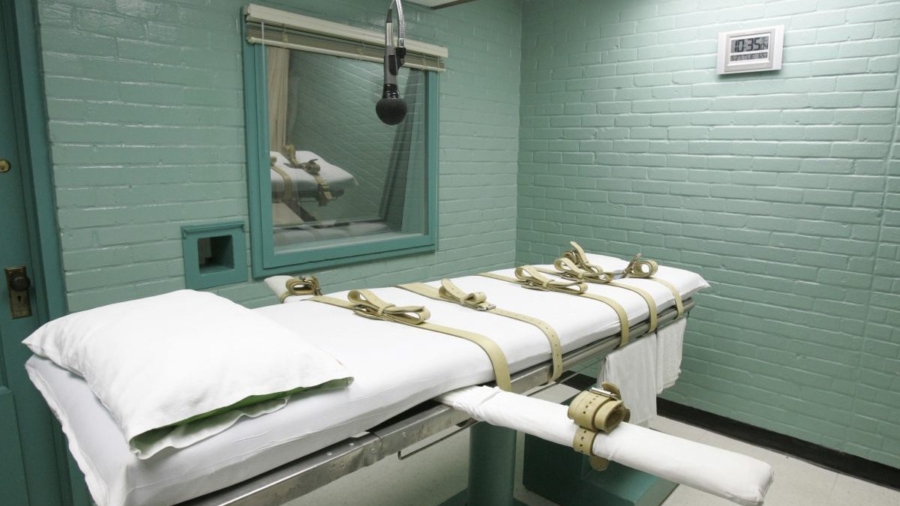An appellate court has overturned a lower court decision blocking the Trump administration’s plan to resume federal executions after a nearly two-decade hiatus.
In a divided opinion on Tuesday, the three-judge panel at the U.S. Court of Appeals for the D.C. Circuit ruled 2-1 that the Justice Department’s (DOJ) protocols for execution were legally acceptable. The ruling is a win for the Trump administration, which has been pushing to resume capital punishment, but executions cannot begin immediately as the appeals court had sent the case back to the lower court for further arguments.
The ruling comes months after Attorney General William Barr announced that federal executions would resume in accordance with newly adopted protocols that governed the way federal executions would be carried out. The protocols stipulated that federal death row inmates are to be executed by a lethal injection of a single dose of pentobarbital. The department also announced at the time that it had scheduled executions for five inmates, one of whom has been stayed.
The inmates then challenged the department’s plan, arguing that the protocols were unconstitutional and violated the Federal Death Penalty Act (FDPA). The district court sided with the inmates, granting them a preliminary injunction and blocked the federal government from executing the men.
Judge Tanya S. Chutkan held that the inmates were likely to succeed in their arguments that the DOJ had exceeded its authority when issuing the protocols. She found that the FDPA gives states the authority to implement federal executions and that the law’s requirement to conduct federal executions “in the manner prescribed” by state law would apply to both the execution method and “additional procedural details” such as precise procedures of how the execution is to be conducted.
The Trump administration then appealed the case to the appeals court, asking for a stay on the injunction. The appeals court refused, prompting the federal government to ask the Supreme Court for an emergency stay on the lower court’s decision. The Supreme Court denied the application and sent it back to the appeals court to quickly decide on the issue.
On Tuesday, two of the judges—Gregory Katsas and Neomi Rao—disagreed with the district court that the protocols had violated the FDPA, but for different reasons.
Katsas accepted the government’s argument, saying that the law only regulates the top-line choice among execution methods such as the choice to use lethal injection instead of hanging or electrocution.
“The FDPA requires federal executions to follow the method of execution provided by the law of the state in which the sentence is imposed, but it does not require federal executions to follow the ‘additional procedural details’ invoked by the district court,” he wrote.
Rao found that the Trump administration is required to follow the execution procedures required in state laws and regulations but does not need to follow less formal state execution protocols. She added that the DOJ’s protocols also allow the administration to depart from its procedures in order to comply with state statutes and regulations.
Meanwhile, Judge David Tatel dissented, saying that the FDPA not only requires the federal government to comply with state laws and regulations when carrying out a federal execution, but also the less-formal state protocols.
“State officials adopt such protocols not just to comply with state law, but also to ensure that executions comply with the Constitution,” he contended.
Tatel also said that Congress had intended for federal executions to be carried out in the same manner as states because it had adopted language from a 1937 Act, which was repealed in 1984, in order to “make executions more humane.” He said to exclude state execution protocols would not only defeat the purpose of ensuring more humane executions, but also the congressional effort to pursue that purpose.
“From the moment it announced the protocol on July 25, 2019, the government has rushed the process in order to carry out executions without meaningful judicial review of the legality and constitutionality of the new execution procedures,” said Cate Stetson, a lawyer for one of the inmates, said in a statement to media.
The Justice Department did not immediately respond to our request for comment.

